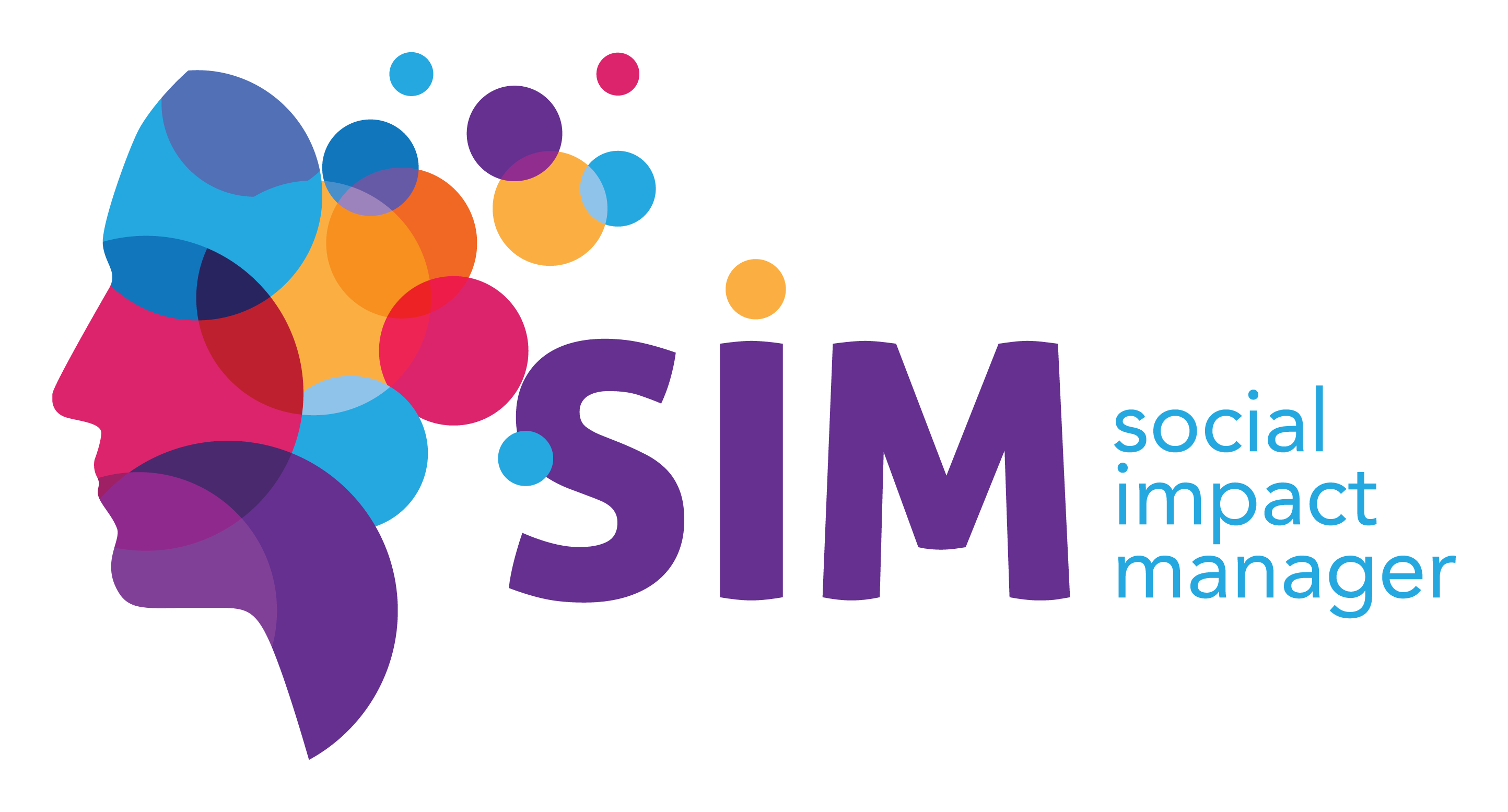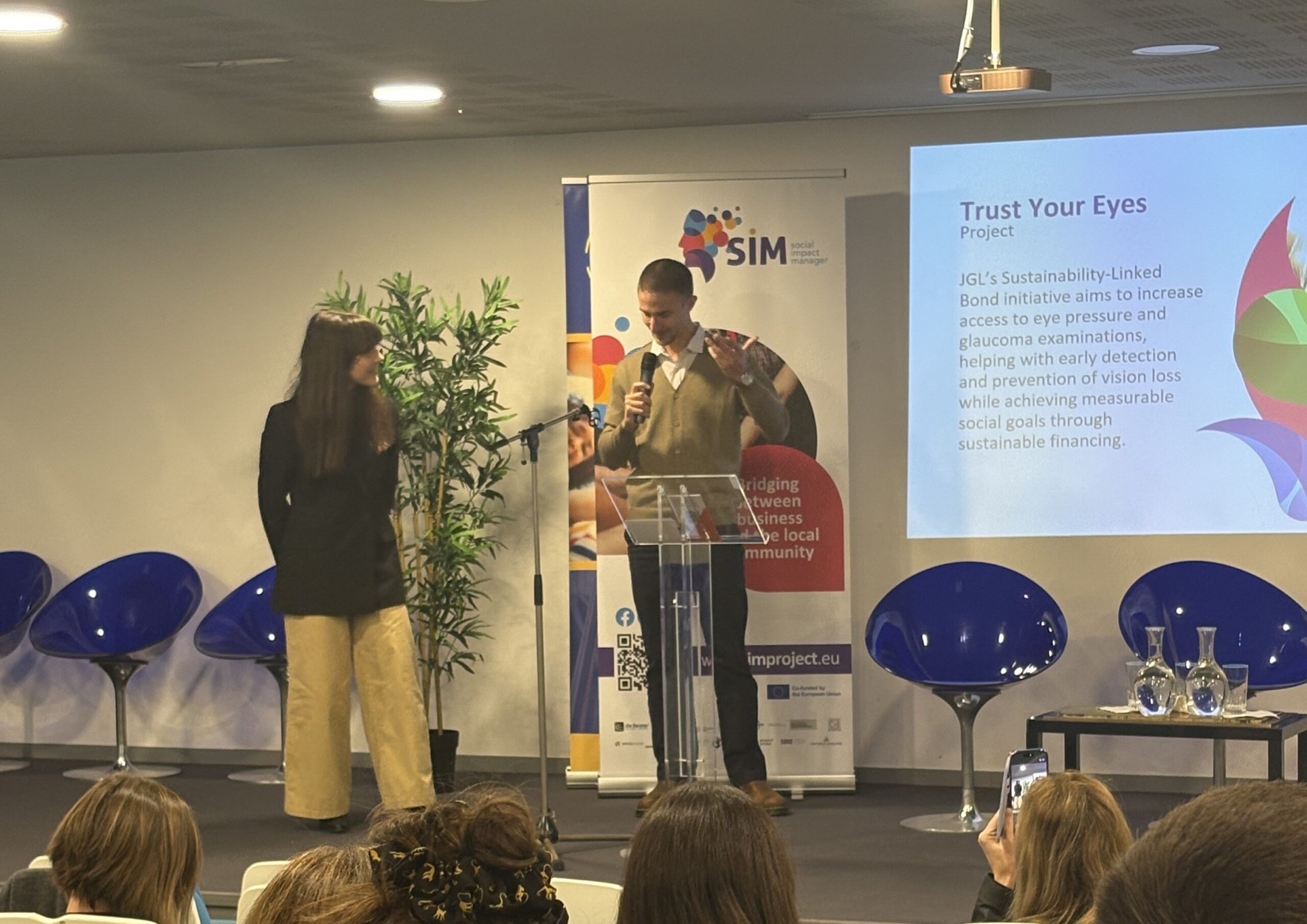Day 1 at the SIM International School, Paris, 4-7th November 2025.
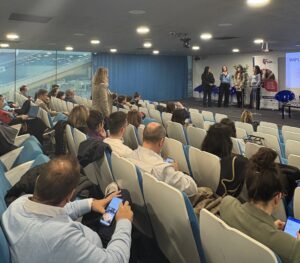 The first generation of Social Impact Managers, a new European career pathway that blends business, ethics and social responsibility, gathered with project partners on November 4th, 2025, at the House of Europe | Maison de l’Europe in Paris, warmly hosted by the University of Paris 1 Panthéon-Sorbonne.
The first generation of Social Impact Managers, a new European career pathway that blends business, ethics and social responsibility, gathered with project partners on November 4th, 2025, at the House of Europe | Maison de l’Europe in Paris, warmly hosted by the University of Paris 1 Panthéon-Sorbonne.
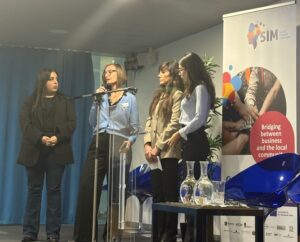 The day opened with two thought-provoking masterclasses and roundtables. Prof. Maryline Filippi from BSA and INRAE Paris Saclay spoke on Beyond CSR: Defining and Operationalising Territorial Corporate Responsibility (TCR), showing how enterprises can anchor their social responsibility in local partnerships and regional development. Muriel Noureau, Co-founder of Ezytail, followed with When Social and Local Responsibility Drive Growth, sharing a powerful account of how businesses can thrive by keeping people and purpose at their centre.
The day opened with two thought-provoking masterclasses and roundtables. Prof. Maryline Filippi from BSA and INRAE Paris Saclay spoke on Beyond CSR: Defining and Operationalising Territorial Corporate Responsibility (TCR), showing how enterprises can anchor their social responsibility in local partnerships and regional development. Muriel Noureau, Co-founder of Ezytail, followed with When Social and Local Responsibility Drive Growth, sharing a powerful account of how businesses can thrive by keeping people and purpose at their centre.
In the afternoon, seven cooperation projects were presented by graduates who had completed the SIM national training in their own countries. Uniquely, each project was shaped through collaboration between learners, companies, and community partners, and each tackled a different challenge, be that personal or corporate. Some projects are up and running while others are at an exploratory stage. All shared the same intention to connect people, business and community for lasting social impact.
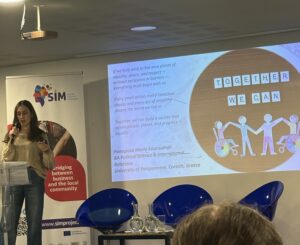 Among them were StartHer from Italy, tackling the challenge of opening access to credit for women in business, and VitaWin from France, which is building stronger bridges between schools and local SMEs. From Greece, the Donation Network showed how logistics expertise could improve national donation systems, while Early Detection for Brighter Vision from Croatia presented a social impact initiative focused on glaucoma prevention. Growing Together from Italy measured the community value of the Orto 3 agriculture project, Be2cation and KIY from Austria explored the use of artificial intelligence in learning and youth work, and Life Cycle, Cycle of Opportunities from Greece demonstrated how circular economy practices can build inclusion and green skills.
Among them were StartHer from Italy, tackling the challenge of opening access to credit for women in business, and VitaWin from France, which is building stronger bridges between schools and local SMEs. From Greece, the Donation Network showed how logistics expertise could improve national donation systems, while Early Detection for Brighter Vision from Croatia presented a social impact initiative focused on glaucoma prevention. Growing Together from Italy measured the community value of the Orto 3 agriculture project, Be2cation and KIY from Austria explored the use of artificial intelligence in learning and youth work, and Life Cycle, Cycle of Opportunities from Greece demonstrated how circular economy practices can build inclusion and green skills.
With such creativity in the room, it is no surprise there was an electric atmosphere of curiosity and collaboration. Tough questions from educators, enterprises and policymakers spanned theory, practice and applicability for each business model, but every presenter rose to the challenge with confidence and clarity.
